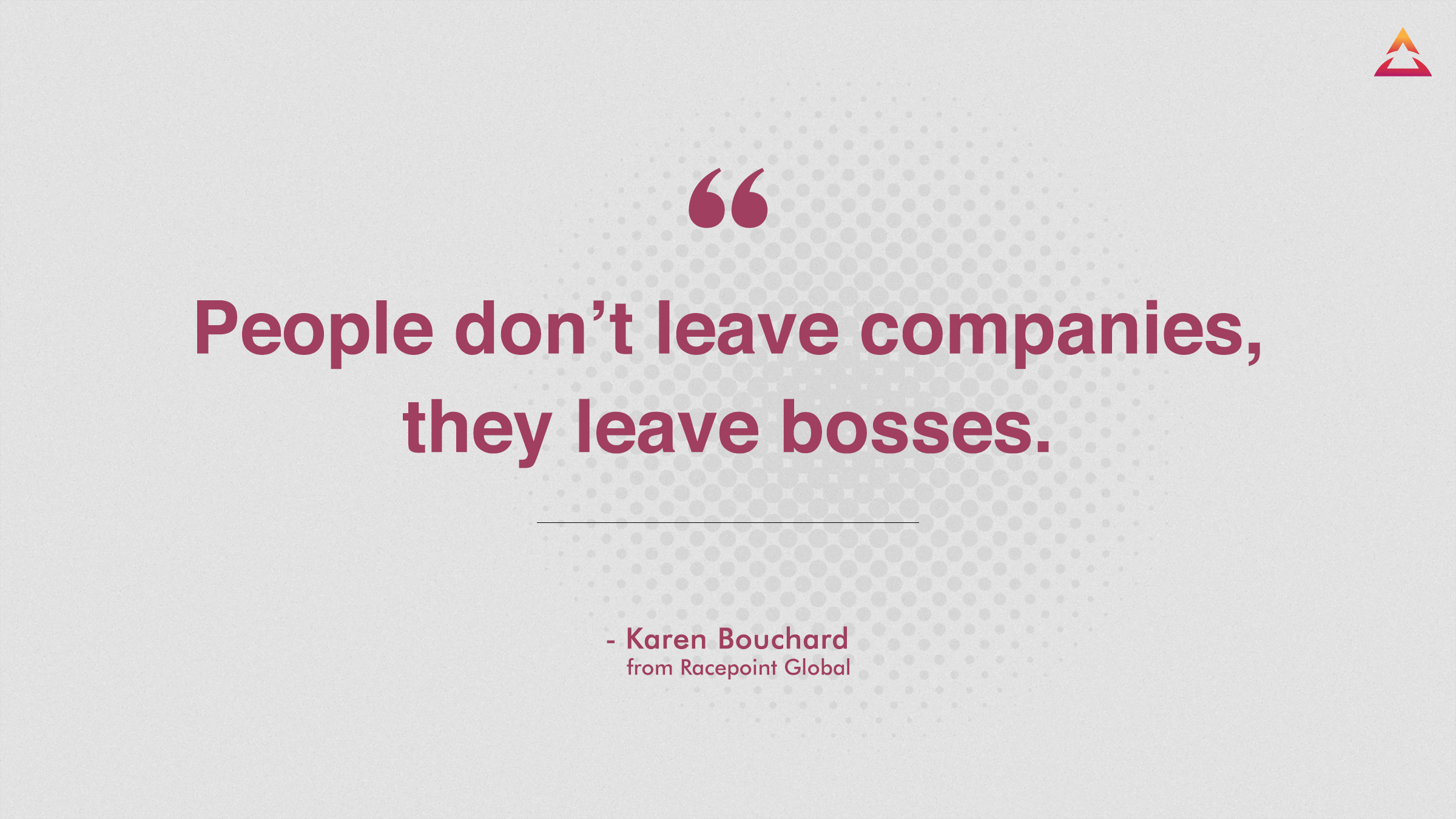Why Is Employee Turnover A Problem For a Business? 5 Tips To Improve It

Historically in Australia, there has been a low employee turnover rate. As a country, we seem to enjoy a stable place to work. However, with the pandemic and the change in how we work, you may have heard of the ‘Great Resignation’ that's happening globally, where many employees have been reassessing their careers and making a change.
Whether or not this has manifested much in Australia is still to be seen. Regardless, a high staff turnover rate can be bad for business, resulting in gaps in knowledge, remaining staff having to pick up the workload, extra costs of hiring, and many more things that affect your business’s growth long-term.
Different industries are affected by staff turnover at different rates. We’ll look at the reasons for staff turnover and how it can impact your business, and give you some tips to minimise resignations to prevent high turnover in your business.
What is the average cost of employee turnover in Australia?
Finding the average cost, per business, for employee turnover is a mammoth task. If you need to retrain someone into specialist software, the training costs could be high. If you need to recruit a specialised employee for a position with specific qualifications, the recruitment costs could be high.
Checking in with Chandler Macleod, the cost in productivity from staff turnover is approximately $3.8 billion a year, and a further $385 million is lost in recruitment costs. Per business, this can equate to almost 2.5 times an employee’s annual salary..
This is no small amount. Hiring the wrong people, or not properly cultivating and looking after employee culture can become extremely costly to your business.
What causes employee turnover?
Not all staff turnover can be attributed to toxic workplaces or toxic people. Sometimes it can be factors outside your control, such as family or relationship matters, or other employment opportunities.
If a staff member leaves for reasons outside your control, wish them well. On the other hand, if some of the following issues pop up, then you may need to re-evaluate your business approach.
Lack of career development and growth
Staff members want opportunities to grow and develop their careers. If someone joins your company and isn't given any professional development or indication of potential career development, they could start losing engagement with the business, their teammates, and the work they do day-to-day. This might prompt them to start looking for opportunities elsewhere.
Never be afraid to upskill your staff wherever possible. If you invest in them, they will return that investment into your business.
Staff overworked
Most employees understand that sometimes their workload can increase. It can be seasonal or an unexpected upturn in business. However, if that workload becomes normal, staff can feel burnt out or taken for granted.
Assess the workload for your staff. If there is so much work, does that imply you have the cash flow to hire more staff? Or are you increasing the pay for your existing staff to match their increased workload?
Lack of recognition
If someone does a good job, they want to know. If your staff labour away and are taken for granted, are not recognised, they will want to go where they are appreciated.
Staff recognition, feedback, awards, all these things can help staff feel valued and not just an employee.
Employee views of management

Staff members don’t like being micro-managed or criticised in front of people. Look at the style of management in place at your work. Is it the cause of a high staff turnover rate?
Toxic workplace culture
This is arguably the biggest cause of employee turnover. Why would someone want to spend the majority of their day in a place they don't enjoy being?
Workplace bullying, passive-aggressiveness, and cliquey behaviour are all examples of toxic workplace culture. Playing employees off against each other, or teams against each other can drive staff away.
Take a good look at your workplace culture. Is it the cause of people leaving? Do you have some dominating personalities? Do you have some unhappy people?
A toxic workplace can be the toughest element to fix, but it is possible.
Even if your team culture isn’t overtly ‘toxic’, little things in your culture, when not properly managed, can over time massively affect how your employees feel about working in your business.
Significant family or life event
This reason for staff turnover is out of your control. Examples include moving to a new city or having to care for a sick or disabled family member. In this case, all you can do is wish them well and offer support.
Effects of high employee turnover on workplace culture
A high staff turnover rate can have many different impacts on your business.
- Revenue and profitability - The cost to recruit someone new and train them can impact a business’s cash flow.
- Low productivity - Losing staff can mean less staff to do the same work, thus productivity suffers.
- Morale - The staff who remain may be overworked due to gaps in the team, and feel unhappy about staff who have left.
- Attracting talent - If a company has a high staff turnover, it can be difficult to attract and retain good quality team members.
How to Reduce Employee Turnover? 5 Tips
Reducing staff turnover and keeping the team together is a positive move for your business. It can build a team that grows together and can celebrate success together. The years' experience in the business can be invaluable to you as time goes on.
Here are some tips on increasing the chances of keeping staff onboard with you.
Recruit the right staff
This can sound obvious, but there is more to hiring staff than just qualifications. Will they fit in with the culture of your workplace? Will they get along with others in your business. Sometimes, the best person for a specific role might not be local. Using a service that enables you to recruit international staff means that you have access to a considerably larger pool of skilled candidates, improving the chances of finding a good fit for the position.
How will you know? That’s a tricky question to answer. You can trust your gut, or give them a quick DISC personality test. It’s only a basic indication of compatibility, but it can provide some essential insights into how people will fit together.
Communicate effectively
This applies both ways. Management needs to communicate clearly to their staff, and staff need to feel like they’re able to communicate with management without fear of repercussions.
This communication practice also applies to teams speaking with other teams, and people in the same team communicating with each other.
Regular catch-ups can help clear the air, get people on the same page, and show where people are not working well together due to communication.
Engage with staff feedback
The first step with staff feedback is to have it anonymous. Staff can feel safer giving honest feedback if they know it won’t be traced back to them and there will be no negative blowback.
Ask for constructive feedback about the performance of the leadership team, how staff feel about their work, and ask for suggestions on how to improve the workplace.
While you may not always be able to implement everything, looking back at the previous item, you can communicate with your staff about the feedback, what you will engage with, what you won’t, and the reasons why.
Improve work environments
Look at the workplace. Understand that people are coming to this place day after day. Is it a welcoming place, or is it dour and demotivating? Would implementing some regular cultural activities help improve the team environment, or do you need to do something more?
Sometimes just encouraging your leadership team to add in one small thing to improve team culture regularly can have a positive impact on people’s attitudes.
Provide staff training
Investing in your staff is good for your business in many ways.
- Upskilling your staff costs less money than hiring new staff to fill a gap.
- Training your staff shows them that you value them as part of your business and would prefer to keep them, rather than re-hiring.
- It helps give your staff members purpose. Rather than being in the same job doing the same role, they get an opportunity to learn and grow within your business.
- Staff members who upskill and learn, within a business, tend to become loyal to the company and the brand.
Have more questions?
Staff turnover is a natural part of business. However, thanks to the pandemic, people are reassessing their employment options and deciding what is more important to their lives- a job or a career. If you know how to manage people well and offer them more than a job, you can keep your staff, build a great culture, and grow your business with them.
See how you can get People and Leadership coaching and training tailored for the challenges small business owners just like you will face with our team at The Entourage. Whether it's hiring difficulties, culture problems, or a lack of leadership skills, our team is here to help you build and grow a great team.
Related Posts
Join the movement.
Your Entourage journey starts here. Join Australia's largest community of over 500,000 business owners and entrepreneurs, and receive instant access to exclusive content and updates delivered straight to your inbox.




